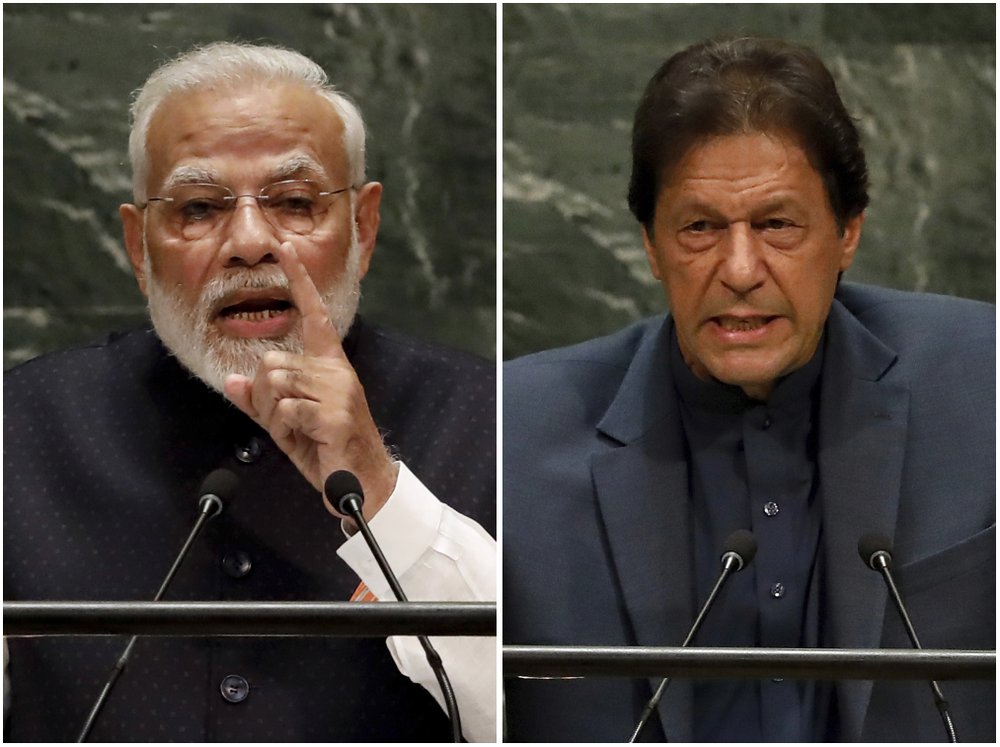
Pakistan’s Kashmir Obsession: An Assessment
Fri, 06 Nov 2020 | Reading Time: 9 minutes

There is a renewed focus on Jammu and Kashmir (J&K) after the revoking, in August 2019[i], of its special status as recognized in Article 370 of Indian constitution and its subsequent reorganization, in October 2019[ii], into a Union Territory, with Ladakh, separated into another Union Territory, directly under the control of the Centre. Pakistan[iii] and China[iv] has protested against these decisions and attempted to include the J&K situation as an agenda for discussion on global platforms like the UNSC[v] and ICJ[vi]. Even as Pakistan continues to indulge in cross border terrorism and firing along with the Line of Control[vii], China has violated past agreements by unilaterally occupying Indian territory along the Line of Actual Control leading to an ongoing prolonged border standoff between both sides[viii]. Pakistan is also attempting to take legal measures, with support from China, to convert Gilgit-Baltistan into a fifth province[ix] &[x]. It has recently accorded provisional provincial status to this territory[xi]. In late 2019, Shireen Mazari, Pakistan’s Minister of Human Rights, proposed a strategic conflict resolution model for resolving the situation[xii]. In the above context, there are several pertinent questions, on how the J&K situation has evolved over the years, which needs to be addressed. This paper makes a modest attempt to provide a factual response to these questions.
First, was India an “occupying power” which took the J&K situation to the UN in 1948?
No. The Government of India Act 1935[xiii] provided that an Indian State may accede to the Dominion of India by an Instrument of Accession executed by the Ruler. Consistent with this requirement, Maharaja Hari Singh, the representative of the princely state of Jammu and Kashmir, signed the Instrument of Accession[xiv] on October 26, 1947, acceding to the Dominion of India. The concern for his people’s welfare was possibly the main reason for the Maharaja to make this accession conditional as follows – a) The land belonging to the State is not compulsory acquired by the Dominion of India b) There is no compulsion for the State to accept the Indian Constitution. An important rejoinder, to Pakistan’s narrative, that the process of accession was forced by India, is in the Government of India’s (GoI) acceptance of the Maharaja’s conditions. Article 370[xv] of the Indian constitution recognised this arrangement by providing an autonomous status to J&K. The territory of the princely state of J&K controlled by the Maharaja of Kashmir, as of October 26, 1947, (including those territories presently occupied by Pakistan) has been legally recognised as under the sovereign control of the Dominion of India. The persistent misuse of these conditions, by certain vested elements within the state and supported by Pakistan, to fuel instability and stop development in the State that may have influenced the Government of India (GoI) decision to revoke the state’s special status as recognised under Article 370 in the Indian Constitution in August 2019. There is also no provision in the Instrument of accession that the above conditions have to remain in perpetuity. GoI has now rightly allowed Indian nationals to purchase land in J&K[xvi].
There is no basis or precedence for Pakistan to attempt raising the J&K situation in any international fora today. It did not approach the UN in 1947 to present its case on the situation. Instead, it allowed its nationals and tribesman to invade India’s legal sovereign territory[xvii], in violation of UN charter principles, in the hope of creating a ‘dispute like situation’ where the UN will be forced to intervene under Chapter VII[xviii]. Pakistan chose to illegally occupy parts of the erstwhile princely state of J&K through unilateral use of force thereby becoming the “occupying power”.
In hindsight, India could have continued to push back Pakistan’s forces and regain the entire territory of the erstwhile princely state of J&K in 1947 instead of placing faith on the UN amidst the enforced fighting by Pakistan.
Second, why did India take the J&K situation to the UN under Chapter VI and not under Chapter VII and/or VIII?
Under Article 34, Chapter [xix], the Security Council was given the mandate, to “investigate any ‘dispute or any situation’, which might lead to international friction or give rise to a dispute that was likely to endanger the maintenance of international peace and security”. GoI went to the UN under Chapter VI as it believed that Pakistan’s unilateral and unprovoked aggression in J&K had resulted in creating a ‘situation’, which might lead to international friction or give rise to a dispute that was likely to endanger the maintenance of international peace and security. GoI wanted a peaceful settlement of the ‘situation’.
India did not approach the UN under Chapter VII as it did not feel a necessity to empower the UN to take military/non-military action in J&K. This would have facilitated the presence of UN forces on India’s sovereign territory until the conclusive resolution of the ‘situation’.
GoI also did not approach the UN under Chapter VIII[xx] as J&K had acceded to India in accordance with the regional arrangement described in the Government of India Act 1935 (GoI Act, 1935) and Indian Independence Act, 1947 (IIA, 1947)[xxi]. Further, at the time of going to the UN, GoI had also not signed any additional regional arrangement with Pakistan on J&K. Hence, Pakistan had become a non-party on J&K once the Instrument of Accession was signed in India’s favour by the official representative of the princely state of J&K.
Third, why have the UNSC resolutions of 1948 not resolved the J&K ‘situation’?
According to the 47th resolution adopted by the UN on 21 April 1948[xxii], the UN recommended certain measures to bring about the cessation of fighting and to create proper conditions for a free and impartial plebiscite:
- The Pakistan Government was made responsible for Securing the withdrawal of tribesman and Pakistani nationals who have entered J&K State for fighting; ii. Preventing intrusion into J&K State of such elements and any giving of material aid to those fighting in the State.
- Following this, the Commission of the Security Council, established by the 39th UN resolutions of 20 January 1948[xxiii], needed to be satisfied that Pakistan has secured the withdrawal of the tribesman and arrangements for ending fighting has become effective.
- It was only if the above pre-conditions were met, that the Indian Government was made responsible for Putting into operation in consultation with the Commission of the Security Council a plan for withdrawing Indian forces from J&K; ii. Reducing them progressively to the minimum strength for the support of the civil power for maintaining law and order; and iii. Holding of a plebiscite on the question of accession of J&K State to India or Pakistan.
Pakistan has been unable to secure the withdrawal of its tribesman or nationals from J&K. It continues to occupy territories that belonged to the erstwhile J&K princely state under Maharaja Hari Singh before 1947. Pakistan has also been unable to prevent a) terror groups from using its sovereign territory for intrusion into J&K and b) such elements giving material aid to those fighting in J&K. Pakistan has not fulfilled its responsibilities without which, the Commission of the UN Security Council will be unable to express satisfaction about the ground situation.
Fourth, in accordance with the UNSC resolutions 1948, is it necessary to conduct a plebiscite for finding a resolution to the J&K situation?
No. Conducting a plebiscite, under the UNSC resolutions 1948, is not a legal and justified option as it would nullify the choice exercised, on the state’s behalf, by the representative of the erstwhile princely state of J&K, in accordance with the power given to him by the GoI Act, 1935 and the Indian Independence Act, 1947, legally (instrument of accession) in favour of the dominion of India. Exercising a plebiscite to resolve only the J&K situation, which did not have any special status before 1947 under the British, will bring into question the rationale used in the two acts above including the unilateral decision on provinces to accede to independent India, the creation of Pakistan through the partition of British India and the subsequent accession of the princely states. All these decisions will have to be made through a plebiscite and it will be impractical and impossible under current circumstances to revisit history.
Fifth, can Pakistan argue legally, as Shireen Mazari has done recently, that the Almaty Declaration of 4 June 2002[xxiv] is relevant to J&K?
No. Pakistan cannot argue legally that the principle of “self-determination”, included in the Almaty Declaration, as distinct from terrorism, is relevant to J&K as the representative of the erstwhile princely State had legally acceded to India. On the contrary, by arguing in such a manner, Pakistan is scoring a self-goal as the “right to self-determination” is legally relevant for people residing in those territories of Kashmir presently occupied forcefully by Pakistan. Non-State Actors operating from territories under Pakistan’s control have been responsible for fuelling violence in legally held Indian Territory of J&K. The Pakistan State has to be held responsible for allowing the use of territory under its control by groups promoting terror activities.
Sixth, can Pakistan invite a UNHCHR team to assess the ground situation in PoK, request the UN to establish a Commission of Inquiry and send the UNMOGIP and other independent observers to investigate Human Rights situation in India’s J&K?
No. Pakistan cannot legally invite a UNHCHR team to assess the ground situation in territories that it has forcefully occupied. There is no justification for it to launch a diplomatic campaign globally for establishing a UN Commission of Inquiry into allegations of human rights violations in J&K, which is a sovereign territory of India. Human rights in J&K have been significantly affected by terrorism fuelled by groups operating in the sovereign territory of Pakistan. Hence, efforts under the aegis of the UN must focus on putting pressure on Pakistan to stop supporting terrorism in J&K so that human rights can be strengthened in a peaceful security environment.
Seventh, as claimed by Shireen Mazari[xxv], can the UNSC resolutions on East Timor be a precedent for resolving the J&K situation?
No. East Timor is a distinct case study, which cannot be considered as a precedent for Kashmir.
- Colony vs. Sovereign Territory: East Timor was colonized by Portugal for over 300 years. Even as numerous Third World countries became independent post Second World War, Portugal continued to rule over East Timor. In comparison, the British had withdrawn from the Indian subcontinent by 1947. Kashmir became a bone of contention between India and Pakistan; two newly independent Third World countries, which have no earlier precedent of having colonized any other territory.
- UN’s Role – Proactive vs. Passive: The UNGA put sustained pressure on Portugal to withdraw from East Timor through the 1950s and 1960s as part of efforts to end colonization globally. Portugal withdrew in 1975 by when Indonesia “forcefully” occupied East Timor. The UN continued to put pressure on Indonesia through 2 Security Council resolutions and 8 General Assembly resolutions. In comparison, the UN has not played any active role in J&K since 1947[xxvi] and there have been no discussions on the J&K situation since the 1970s.
- Sovereignty- Illegality vs. Legality: There was no legal written document of consent for Indonesia’s actions either by the representatives or the people of East Timor. In comparison, India has legal written documentation clearly establishing its sovereignty over J&K. If Pakistan decides to question the legality of India’s ownership, then the basis for the creation of Pakistan itself will be questioned.
- Geography – Contiguous vs. Distant: East Timor is distant from Indonesia separated by a distance of around 1500kms of the sea. In comparison, J&K is contiguous to the dominion of India.
- Process – Unilateral Force vs. Peaceful Consent: As Indonesia’s action was forceful, unilateral and without provocation, the UN emphasised the East Timor peoples right to self-determination. In comparison, J&K has acceded to India legally. India has asserted its claim peacefully amidst provocation by Pakistan[xxvii]&[xxviii].
Conclusion
India’s sincere attempts, since 1947, to resolve the J&K situation peacefully and bilaterally has been unable to make progress amidst Pakistan’s persistent playing up of the situation for its narrow domestic interests. India’s claim on the princely state of J&K is legally strong. Pakistan’s latest move to provide provisional provincial status to a part of the territory of the erstwhile princely state of J&K occupied illegally by it violates the people’s right to self-determination. This will only increase further global pressure on Pakistan. India’s persistent diplomatic campaign punctuated by factual representations has firmly put Pakistan on the international spotlight for its support of terrorism. Pakistan continues to languish in the grey list of the Financial Action Task Force after the latest assessment in October 2020. India’s diplomatic efforts have enabled it to strengthen relations with the US in the last two decades. Simultaneously, the US has moved away from Pakistan. Recently, Saudi Arabia, another traditional ally, has expressed its strong dissatisfaction against Pakistan.
References
[i]Ministry Of Law And Justice Notification, The Constitution (Application To Jammu And Kashmir) Order, 2019 C.O. 272, New Delhi, the 5th August 2019 http://egazette.nic.in/WriteReadData/2019/210049.pdf
[ii]Ministry Of Law and Justice (Legislative Department) New Delhi, the 9th August 2019
The Jammu and Kashmir Reorganisation Act, 2019 No. 34 Of 2019, http://egazette.nic.in/WriteReadData/2019/210407.pdf
[iii]Baqir Sajjad Syed, New Delhi sheds fig leaf, robs held Kashmir of special status, Dawn, August 6th, 2019 https://www.dawn.com/news/1498265/new-delhi-sheds-fig-leaf-robs-held-kashmir-of-special-status
[iv]PTI, Beijing has no locus standi in India’s internal matter: MEA hits out at China over J&K comments, The New Indian Express, August 5, 2020, https://www.newindianexpress.com/nation/2020/aug/05/beijing-has-no-locus-standi-in-indias-internal-matter-mea-hits-out-at-china-over-jk-comments-2179579.html
[v]Baqir Sajjad Syed, Pakistan seeks emergency UNSC meet on Kashmir, August 14, 2019, https://www.dawn.com/news/1499417
[vi]BBC News, Kashmir: Pakistan to seek International Court of Justice ruling, August 20 2019
https://www.bbc.com/news/world-asia-india-49414213
[vii]PTI, Over 2,000 ceasefire violations by Pakistan along LoC this year, according to official data, The Hindu, June 14, 2020, https://www.thehindu.com/news/national/over-2000-ceasefire-violations-by-pakistan-along-loc-this-year-according-to-official-data/article31826107.ece
[viii]Ashley Tellis, Hustling in the Himalayas: The Sino-Indian Border Confrontation, Carnegie Endowment for Peace, June 2020, https://carnegieendowment.org/files/Tellis_Himalayan-Border-Standoffs.pdf
[ix]Yashvardhan Singh, The fifth province: “To be or not to be.” February 08, 2019, https://www.orfonline.org/expert-speak/the-fifth-province-to-be-or-not-to-be/
[x]ANI, Pak Army forcibly making Gilgit Baltistan 5th province, October 03, 2020
[xi], Pakistan PM Imran Khan grants provincial status to Gilgit-Baltistan, The Print,
1 November 2020 https://theprint.in/world/pakistan-pm-imran-khan-grants-provincial-status-to-gilgit-baltistan/535016/
[xii] Syed Ata Hasnain, Why a J&K ‘solution’ by Pak Mantri won’t work, Nov 5 2018
https://www.asianage.com/opinion/columnists/051118/why-a-jk-solution-by-pak-mantri-wont-work.html
[xiii]Government of India Act, 1935
https://www.legislation.gov.uk/ukpga/1935/2/pdfs/ukpga_19350002_en.pdf
[xiv]Instrument of Accession of Jammu and Kashmir, October 27, 1947, http://jklaw.nic.in/instrument_of_accession_of_jammu_and_kashmir_state.pdf
[xv]The Constitution (Application To Jammu And Kashmir) Order, 1954 C.O. 48, https://www.india.gov.in/sites/upload_files/npi/files/coi_appendix.pdf
[xvi]Editorial, Centre notifies new land law for J&K, allows every Indian to buy land in UT, Economic Times, October 27, 2020
[xvii] ANI, Raiders in Kashmir: Pakistan’s ex-Major General Akbar Khan admits to country’s role in the conflict in the valley, https://www.freepressjournal.in/india/raiders-in-kashmir-pakistans-ex-major-general-akbar-khan-admits-to-countrys-role-in-conflict-in-the-valley
[xviii]Charter of the United Nations, Chapter VII — Action concerning Threats to the Peace, Breaches of the Peace, and Acts of Aggression, Article 39, https://legal.un.org/repertory/art39.shtml
[xix]charter of the United Nations, Chapter VI — Pacific Settlement of Disputes, Article 34 https://legal.un.org/repertory/art34.shtml
[xx]Charter of the United Nations, Chapter VIII — Regional arrangements, Article 52, https://legal.un.org/repertory/art52.shtml
[xxi]Indian Independence Act, 1947, https://www.legislation.gov.uk/ukpga/1947/30/pdfs/ukpga_19470030_en.pdf
[xxii]Resolution 47 (1948) / [adopted by the Security Council at its 286th meeting], 21 April 1948, https://digitallibrary.un.org/record/111955/?ln=en
[xxiii]Resolution 39 (1948) / [adopted by the Security Council at its 230th meeting], 20 January 1948, https://digitallibrary.un.org/record/111954?ln=en
[xxiv]Almaty Act, June 4, 2002, https://www.satp.org/satporgtp/southasia/documents/papers/Almaty.htm
[xxv]Shireen Mazari, Beyond rhetoric to conflict resolution, The News, September 29, 2016, https://www.thenews.com.pk/print/153496-Beyond-rhetoric-to-conflict-resolution
[xxvi]Farhan Haq, Rights-Kashmir: India Bristles Over Comparisons with East Timor, Inter Press Service, September 24, 1999, http://www.ipsnews.net/1999/09/rights-kashmir-india-bristles-over-comparisons-with-east-timor/
[xxvii]Shankari Sundararaman (2000) East Timor and Kashmir: Questioning the Parallels on the issue of the referendum, Strategic Analysis, 24:2, 283-300,
https://www.idsa-india.org/an-may-05.html
[xxviii]Michael Krepon, Applying Comparative Models of Peaceful Conflict Resolution to the Kashmir Dispute, Stimson Centre, March-June 2005, https://en.unesco.org/fellowships/keizo-obuchi/summary-research-carried-out/applying-comparative-models-peaceful-conflict-resolution-kashmir
Disclaimer
The opinions expressed in this article are the author’s own and do not reflect the views of Chanakya Forum. All information provided in this article including timeliness, completeness, accuracy, suitability or validity of information referenced therein, is the sole responsibility of the author. www.chanakyaforum.com does not assume any responsibility for the same.
Chanakya Forum is now on . Click here to join our channel (@ChanakyaForum) and stay updated with the latest headlines and articles.
Important
We work round the clock to bring you the finest articles and updates from around the world. There is a team that works tirelessly to ensure that you have a seamless reading experience. But all this costs money. Please support us so that we keep doing what we do best. Happy Reading
Support Us




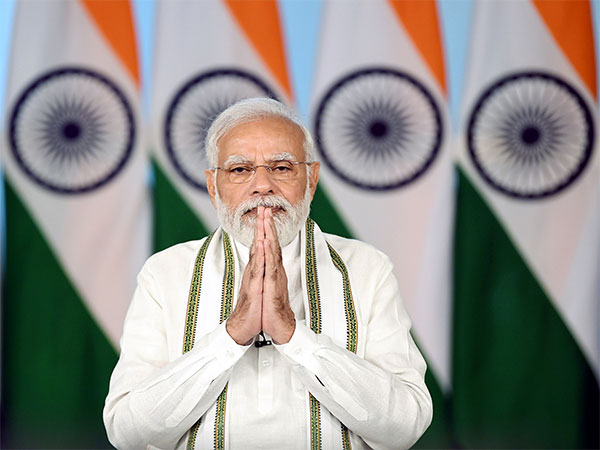

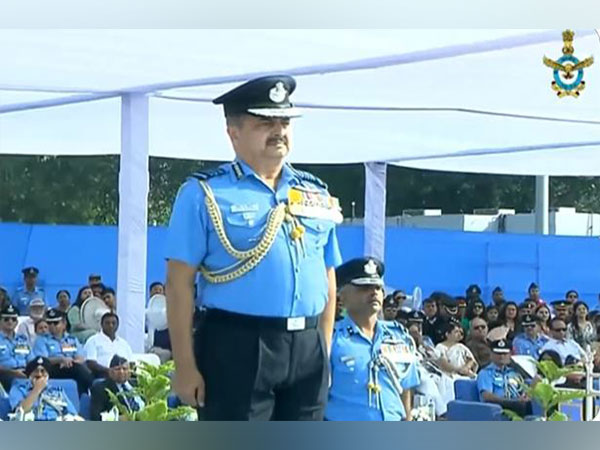

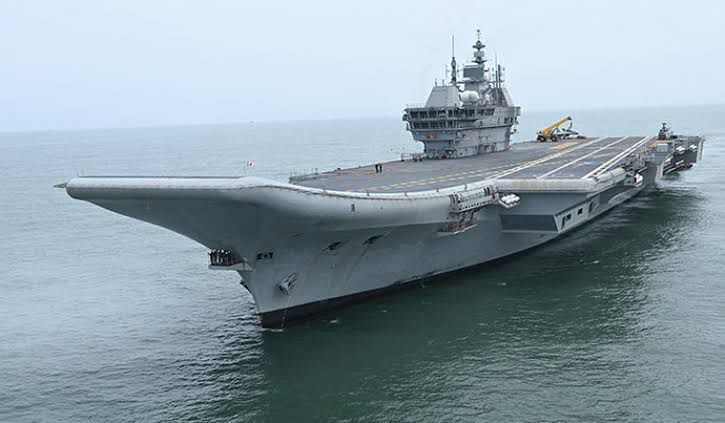

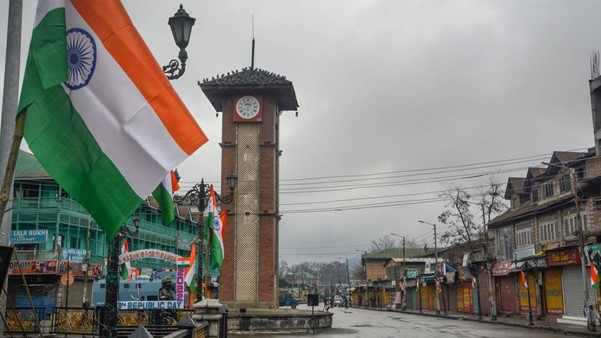
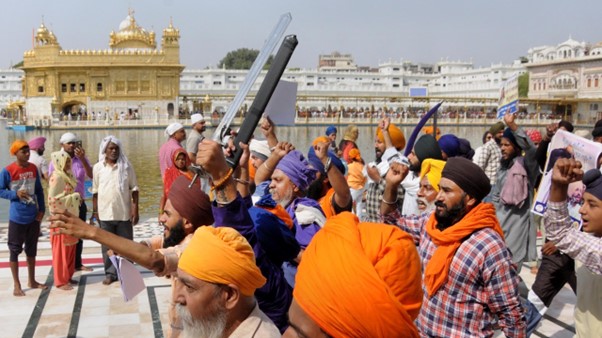
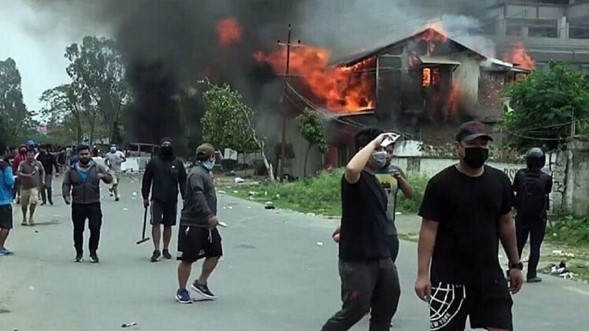
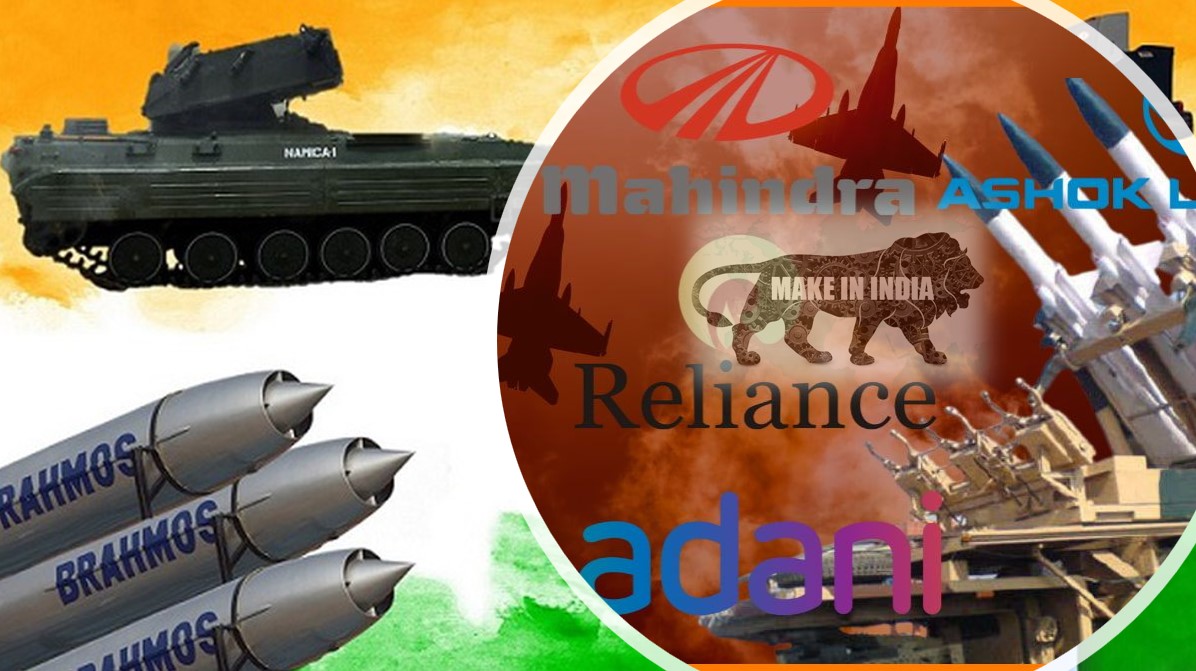






POST COMMENTS (2)
G.Kishore Babu,Editor,World Focus.
Professor Anand Singh